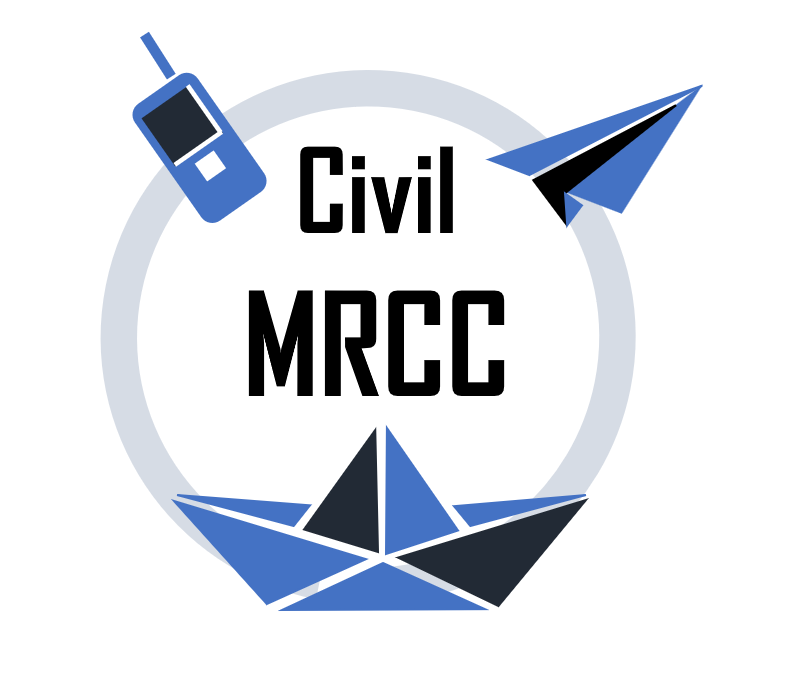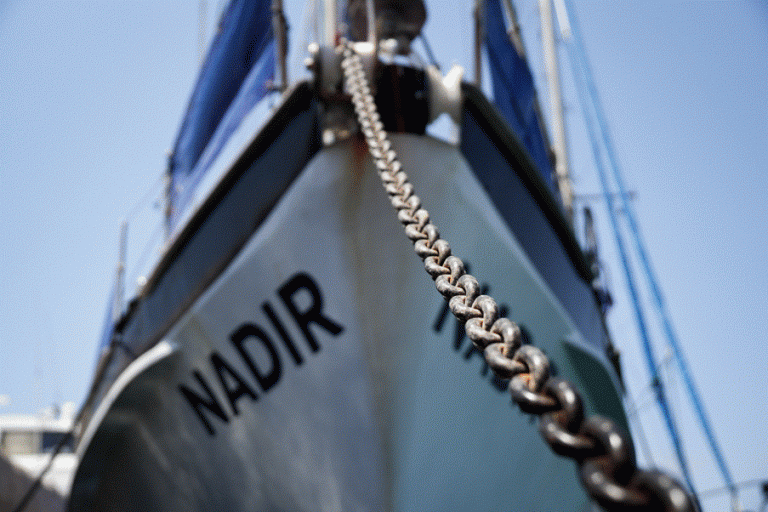Over the past years, within our no-border networks, including the Captain Support Network, borderline europe, Watch and Med Alarm Phone, the Iuventa crew, the Ragazzi Baye Fall, Sportello Sans Papiers of Arci Porco Rosso, and more recently the Maldusa Project, borderline europe and many others, we’ve been discussing the relationship between struggles against borders, the illegalization of people on the move, and the criminalization of any form of facilitation to freedom of movement.

During a workshop held in Palermo back in fall 2022, a consensus emerged on the need to create materials to counter the discourses of ‘smuggling’ and ‘trafficking’ that mobilise public support for criminalisation of people on the move, and other forms of border violence.
As a result we, at the Feminist Autonomous Centre for research, designed an online community course to address multiple implications of the politics of criminalisation of facilitation, such as the discursive, political, and legal implications. In particular, the course addressed how the process and continuum of criminalisation is not only a tool of incarceration, but also an attempt to depoliticise struggles against borders, as well as to weaken any form of migrant self-organisation and solidarity.
- Episode 1: Feminist perspectives on prison abolition and border abolition (4 September 2024)
- Episode 2: Facilitation, smuggling, or solidarity? A contested narrative (18 September 2024)
- Episode 3: Victimisation, patriarchal ‘protection’ and white saviourism (2 October 2024)
- Episode 4: Neo-colonial borders: externalisation, and criminalisation (16 October 2024)
- Episode 5: Legal and political struggles in court (30 October 2024)
- Episode 6: Underground railroads: the road towards abolition (13 November 2024)
- Episode 7: #FreePylos9 Teach-In (27 November 2024)
The presentations and discussions that took place during the course were recorded, and are now available in the form of a podcast series titled ‘The Criminalisation of Freedom of Movement, which comprises 7 episodes, each addressing criminalisation as well as resistance to it, from a different perspective.
Central to these conversations is the relationship between border abolition and wider struggles for prison abolition. Struggles against borders and against prisons, in our view, cannot be separated, as borders and prison are deeply entangled.
Like prisons, borders confine and immobilise people. Like prisons, borders punish people and they keep them stuck in geographical and temporal limbo. Like prisons, borders are violent and they kill people, they expose people to premature death and organised abandonment. Like prisons, borders are built to create racist apartheid and racialised segregation, to control racialised people’s freedom and to create the conditions for exploitation. Like prisons, borders aim to make some lives unlivable.
For both prisons and borders, the violence they exercise is legitimised by claiming that it deters people from committing actions against state-imposed laws and norms, or actions against state-imposed borders. But, like for prisons, border violence does not actually have this deterrence effect. Their violence does not stop people from moving. And it does not stop people from defying borders and state-imposed laws. People do not stop defying borders and transgressing laws because of the fear of the violence that they might face. As much as they do not have a deterrence function, borders like prisons do not have only repressive functions. Rather than stopping people’s movements and freedom, they aim at creating docile, silent, fearful and dependent subjectivities that can be easily exploited and controlled, thereby repressing any form of political action against state -imposed laws, norms or borders.
Moreover, like prisons, the border regime does not stop at the border. They police, they enforce controls, they surveil every aspect of our lives. They are both productive or specific social relationships, of subjectivities and categories in our society. Indeed, they shape our lives, bodies and feelings well before and after they are crossed. They create subjectivities, narratives, hierarchies and practices that we internalise and embody in our every relationships. This perspective is important to understand how resistance can be multiplied and extended to all these aspects of life.
In this way, borders are not just like prisons. They’re not just similar institutions: borders need prisons. They need criminalization. They need imprisonment and punishment in the form of deportations, pushbacks, or camps. Borders also create new prisons, be they punitive or ‘humanitarian’, spatial or temporal. For these reasons, we argue that prisons and borders need one another and are co-constitutive.
As Maryama Omar powerfully explains (in an extract from de Verbranders podcast) that opens our podcast series, the border regime created thousands of prisons around their body, it criminalised and made illegal every aspect of her life. Her very existence has been illegalized before and after she arrived in the Netherlands. But again, as Maryama explains, like prisons, borders do not work. They do not stop people’s movements. They do not stop resistance. They do not silence people’s struggles for freedom.
This brings us back to key slogans that inform our movements, and that the course started with: no borders, no one is illegal, freedom of movement for all.
Often, these slogans, as well as the abolition of borders and prisons are seen as just abstract ideas that do not have materiality in the real struggles of our lives. In this course and related podcast, we discussed how they constitute everyday practices, how they are created in everyday relationships, beyond slogans. We claim that for the abolition of borders and prisons it is also necessary to undertake an intersectional, transfeminist perspective, to understand how the violence they exercise is structural and institutional, as well as gendered and racialised.
From this perspective, we cannot stop by rescuing people at sea. We need to think about how borders are really present in all our social relationships. It also means to abandon narratives that place people in categories that cage them, as well as the language and logic of punishments and carceral institutions on the one hand, or charity and humanitarianism, on the other.
As an alternative, and in addition to the wonderful work we are all already doing, we need to keep creating alternative and transformative communities that are based on love, mutual care and freedom.
We thank all the people who participated in the course, either by contributing to the roundtables, or by participating in the conversations and discussions. We also thank all the no border groups that are part of the struggles against criminalisation, and with whom we co-created new languages, narratives and knowledges over the past years.
All podcast episodes, course materials, syllabus and readings can be downloaded from the fac research website: https://feministresearch.org/community-courses/#RCF
The podcast is also available on Spotify: https://open.spotify.com/show/224L5XOvWVmD2LdKC6v8Lw
Authors: Deanna, Camille, Aila and Anna (Feminist Autonomous Centre for research)



